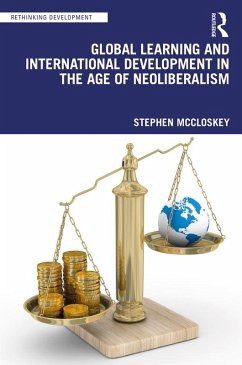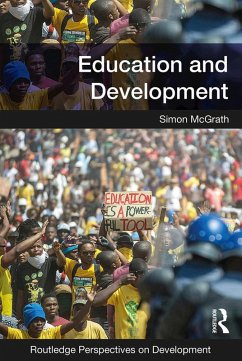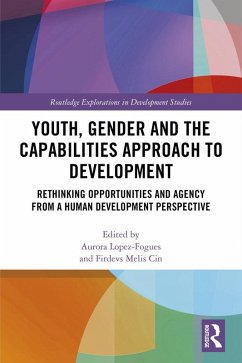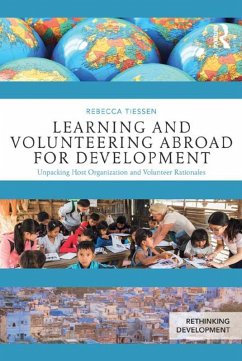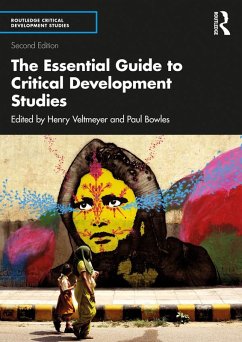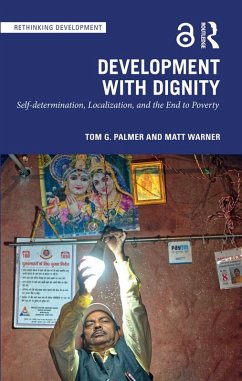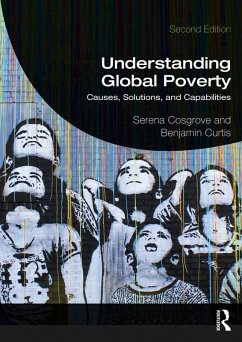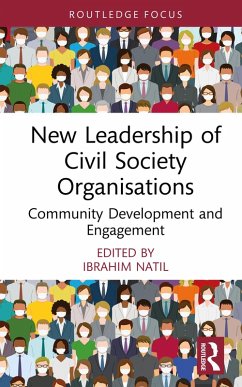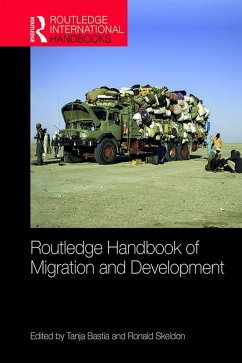
Global Learning and International Development in the Age of Neoliberalism (eBook, ePUB)
Versandkostenfrei!
Sofort per Download lieferbar
39,95 €
inkl. MwSt.
Weitere Ausgaben:

PAYBACK Punkte
20 °P sammeln!
This book argues that the international development sector is in crisis which can be mostly sourced to its side-stepping the dominant development question of our age, the neoliberal growth paradigm. It argues that this crisis can be addressed, at least in part, by the sector's re-engagement with the radical development education process that it helped to foster and sustain for over two decades.The recent safeguarding scandal is symptomatic of a sector that is becoming overly hierarchical, brand conscious and disconnected from its base. This book argues that many of the problems the sector is f...
This book argues that the international development sector is in crisis which can be mostly sourced to its side-stepping the dominant development question of our age, the neoliberal growth paradigm. It argues that this crisis can be addressed, at least in part, by the sector's re-engagement with the radical development education process that it helped to foster and sustain for over two decades.
The recent safeguarding scandal is symptomatic of a sector that is becoming overly hierarchical, brand conscious and disconnected from its base. This book argues that many of the problems the sector is facing can be sourced to its failings in grappling with the question of neoliberalism and formulating a coherent critique of how market orthodoxy has accelerated poverty in the global North and South. This book recommends re-embracing the radical origins of global learning, situated in the participative methodology and praxis (reflection and action) of Paulo Freire, both as internal capacity-building and external public engagement. The book proposes a new development paradigm, focusing on bottomup, participative approaches to policy-making based on the needs of those NGOs claim to represent - the poor, marginalised and voiceless - rather than constantly following the agenda of donors and governments.
The recommendations made by this book will serve as an important resource for researchers and students of international development and global learning, as well as to NGOs, civil society activists and education practitioners looking for solutions to the problems within the sector.
The recent safeguarding scandal is symptomatic of a sector that is becoming overly hierarchical, brand conscious and disconnected from its base. This book argues that many of the problems the sector is facing can be sourced to its failings in grappling with the question of neoliberalism and formulating a coherent critique of how market orthodoxy has accelerated poverty in the global North and South. This book recommends re-embracing the radical origins of global learning, situated in the participative methodology and praxis (reflection and action) of Paulo Freire, both as internal capacity-building and external public engagement. The book proposes a new development paradigm, focusing on bottomup, participative approaches to policy-making based on the needs of those NGOs claim to represent - the poor, marginalised and voiceless - rather than constantly following the agenda of donors and governments.
The recommendations made by this book will serve as an important resource for researchers and students of international development and global learning, as well as to NGOs, civil society activists and education practitioners looking for solutions to the problems within the sector.
Dieser Download kann aus rechtlichen Gründen nur mit Rechnungsadresse in A, B, BG, CY, CZ, D, DK, EW, E, FIN, F, GR, HR, H, IRL, I, LT, L, LR, M, NL, PL, P, R, S, SLO, SK ausgeliefert werden.




